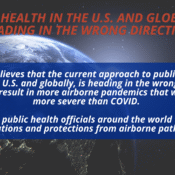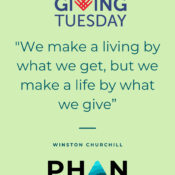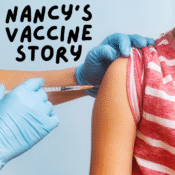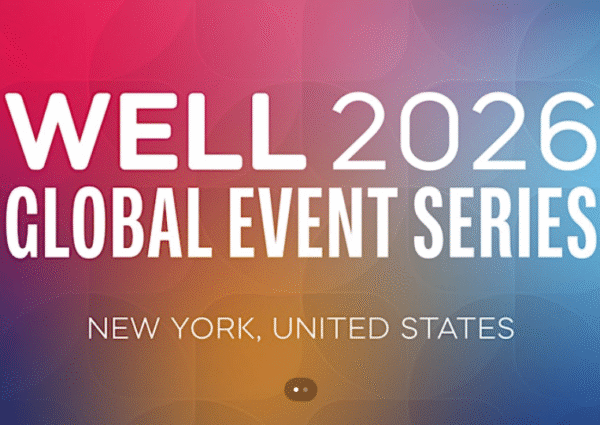Why Vaccinations Matter: Protecting Ourselves, Our Communities, and Debunking Myths
Vaccines have been one of the most powerful tools in modern medicine, preventing millions of deaths and eradicating devastating diseases worldwide. Yet, with the rise of misinformation, vaccines have faced growing skepticism, making it crucial to clarify the importance of vaccinations, dispel common myths, and understand why getting vaccinated,especially against COVID-19A disease caused by the SARS-CoV-2 virus, leading to respiratory illness.,matters, even if vaccines don’t prevent infection or transmission completely.
Why Vaccines Are Essential for Public Health
Vaccines are a fundamental component of public health, designed to help our bodies build immunity to specific diseases without the need to experience the illness itself.
Vaccines work by stimulating the immune system to recognize and fight pathogens more effectively. If you’re exposed to the real virus or bacteria after vaccination, your body is prepared to respond faster and more efficiently, often preventing severe illness.
Debunking Common Anti-Vaccine Myths
The anti-vaccine movement has propagated several myths, but they don’t hold up against scientific evidence. Let’s look at a few common claims and the facts that counter them:
1. “Vaccines Cause Autism”
The claim that vaccines cause autism stems from a single, fraudulent study published in 1998 by Andrew Wakefield, who falsely linked the MMR (measles, mumps, and rubella) vaccine to autism. This study was later retracted, and Wakefield lost his medical license due to ethical violations and misconduct. Subsequent research, involving millions of participants across decades, has consistently found no link between vaccines and autism. Organizations like the CDC, WHO, and American Academy of Pediatrics affirm that vaccines are safe and not associated with autism.
2. “Vaccines Contain Harmful Ingredients”
Some people worry about ingredients in vaccines, such as preservatives like thimerosal, which contains ethylmercury. However, ethylmercury is rapidly eliminated from the body and is safe at the low doses used in vaccines. Additionally, thimerosal has been removed from almost all vaccines given to children in the U.S. for decades, with no impact on autism rates. Other vaccine components, like aluminum salts, help improve the immune responseThe body's defense mechanism against pathogens. but are used in extremely small, safe amounts.
3. “Natural Immunity Is Better Than Vaccine-Induced Immunity”
While natural immunity can be strong, it often comes at a high cost. Contracting a disease like measles, chickenpox, or COVID-19A disease caused by the SARS-CoV-2 virus, leading to respiratory illness. can lead to severe illness, hospitalization, or even death. Vaccines provide a way to develop immunity without the risks associated with catching the disease. For example, complications from measles can include pneumonia and encephalitis (brain inflammation), which are preventable with a simple vaccine.
4. “Vaccines Are Not Well-Tested”
Vaccines undergo rigorous testing in clinical trials before being approved, following standards set by regulatory bodies like the FDA. Post-approval, vaccines are continuously monitored to ensure their safety. The COVID-19A disease caused by the SARS-CoV-2 virus, leading to respiratory illness. vaccines, for instance, were tested in large-scale trials with tens of thousands of participants, and their rapid development was due to unprecedented global collaboration, not the skipping of safety protocolsGuidelines to ensure safety in disease management..
4. “The COVID19 Vaccine Will Create Herd Immunity”
Unfortunately, coronaviruses like SARS-COV-2The virus responsible for the COVID-19 pandemic. mutate far too rapidly to allow for herd immunityWhen a significant portion of a population becomes immune to a disease, reducing its spread.. Regardless of what you’ve heard, there is no herd immunityWhen a significant portion of a population becomes immune to a disease, reducing its spread. that can come from either vaccinations or infections for SARS-COV-2The virus responsible for the COVID-19 pandemic..
Why COVID-19 Vaccinations Are Important
COVID-19A disease caused by the SARS-CoV-2 virus, leading to respiratory illness. vaccinations have sparked unique questions, primarily because the virus is highly contagious and capable of causing severe illness in some people while remaining mild in others. While COVID-19A disease caused by the SARS-CoV-2 virus, leading to respiratory illness. vaccines don’t guarantee that you won’t get infected or spread the virus, they play an essential role in reducing the severity of the illness if you do get sick. Here’s why that matters:
1. COVID-19 Vaccines Reduce the Risk of Severe Disease and Death
COVID-19A disease caused by the SARS-CoV-2 virus, leading to respiratory illness. vaccinations significantly reduce the risk of severe outcomes, such as hospitalization, long-term complications, and death. Even as new variants emerge, vaccinated individuals are far less likely to experience life-threatening symptoms. This effect is especially important for those at higher risk, including older adults and people with preexisting health conditions.
2. Vaccines Help Preserve Healthcare Resources
Every year, hospitals face a surge in admissions during flu season, and COVID-19A disease caused by the SARS-CoV-2 virus, leading to respiratory illness. has only increased this burden. By reducing the likelihood of severe illness, vaccinations help prevent healthcare systems from being overwhelmed. Fewer hospitalizations mean that resources remain available for those who truly need them, including people facing other medical emergencies.
3. COVID-19 Vaccines Reduce the Risk of Long COVID
Long COVIDPersistent and new symptoms following recovery from acute COVID-19. More,a condition where symptoms persist for months after the initial infection,is one of the most challenging aspects of COVID-19A disease caused by the SARS-CoV-2 virus, leading to respiratory illness.. Studies indicate that vaccinated individuals are less likely to experience long COVIDPersistent and new symptoms following recovery from acute COVID-19. More compared to those who are unvaccinated. By reducing the risk of chronic complications, vaccines contribute to long-term health and quality of life.
4. Vaccination Limits the Virus’s Ability to Mutate
When viruses replicate, they can mutate, potentially leading to new variants. Widespread vaccination reduces the number of active infections, which decreases the chance for mutationsChanges in a virus's genetic material that may affect transmissibility or severity. to occur. While variants may still emerge, vaccination is a key tool in limiting the virus’s evolutionary opportunities.
Vaccination: An Ongoing Commitment to Health
Vaccines represent a commitment to both individual and public health. The decision to get vaccinated isn’t just about personal protection; it’s about contributing to a healthier community and a more resilient healthcare system. The COVID-19A disease caused by the SARS-CoV-2 virus, leading to respiratory illness. vaccines are no different. Although they don’t entirely prevent infection or transmission, they reduce the severity of illness, lower the risk of chronic complications, and help curb the virus’s spread.
COVID-19A disease caused by the SARS-CoV-2 virus, leading to respiratory illness. will likely remain part of our lives, much like the flu, but widespread vaccination can transform it from a severe, unpredictable threat into a manageable illness. By choosing vaccination, we not only protect ourselves but also contribute to a healthier, safer society.
Final Thoughts
Vaccines are one of the most successful public health interventions in history. They protect us from diseases we rarely see today, like polio and smallpox, and they continue to evolve to meet new challenges like COVID-19A disease caused by the SARS-CoV-2 virus, leading to respiratory illness.. Debunking myths and understanding the true benefits of vaccines allows us to make informed choices for ourselves and our communities.
In a world where misinformation can spread quickly, it’s vital to rely on trusted sources, including the CDC, WHO, and reputable healthcare providers. Vaccination isn’t just a personal choice; it’s a responsibility we hold to protect those around us, limit the spread of disease, and build a healthier future for all.













